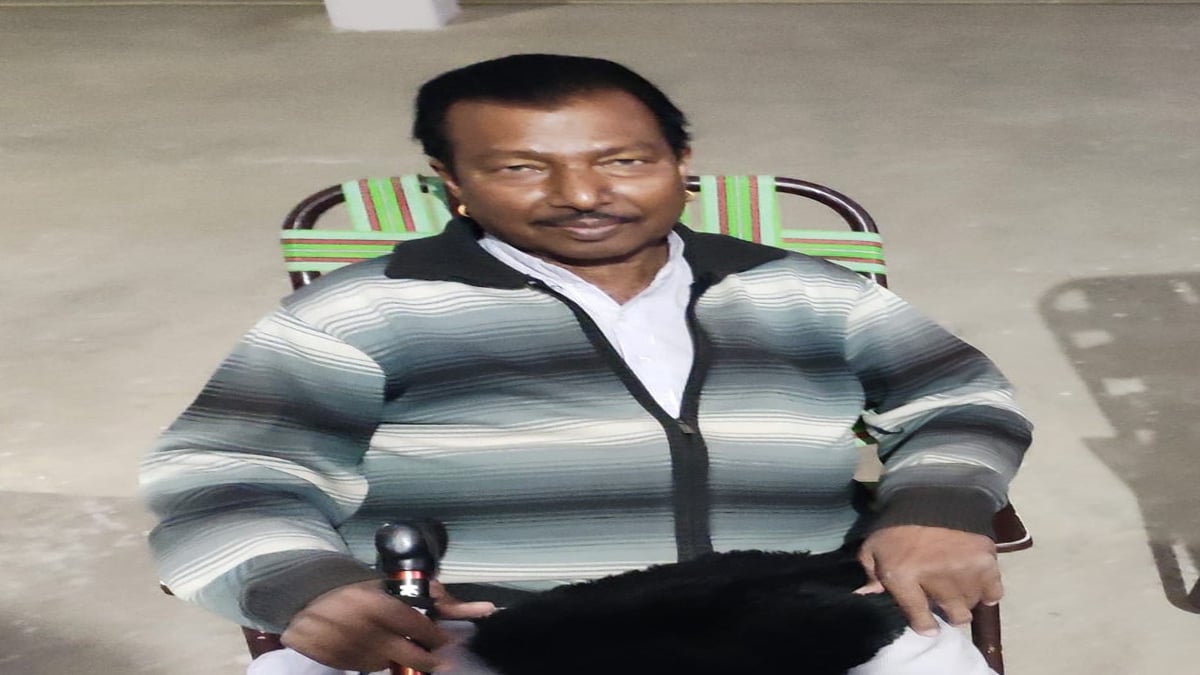Karmi Manjhi
Assistant Professor, Department of Tribal and Regional Languages
Ranchi Women’s College, Ranchi
Dr. Giridhari Ram Gaunjhu was one of the special people who knew and understood the cultural heritage of Jharkhand very well. The air and water here, the personality of the people of the society, their expression, he was the voice of everyone. Through his writing, he used to express the expression of the society in his writings. He was born on 5 December 1949 in Belvadag village of Khunti district. Father- Indranath Gaunjhu was a farmer. His family was economically and culturally prosperous. In the joint family of three grandfathers, festivals were celebrated with great pomp and show. Being the first grandson of his generation in the family, the elders of the family used to take Giridhari along with them to Akhra.
At that time, only Akhara was the cultural center for the villagers. Since childhood, Gaunjhu ji got the opportunity to closely observe, learn and understand the cultural heritage of the society. Later, in his writings, he worked to record the essential characteristics of the society like Akhara, the symbol of unity of the society, fair-jatra, festivals, ‘Sahiya culture’, the symbol of social harmony, Madit Bhav, Paicha tradition etc. The characteristics of Jharkhandi society were preserved by him for the new generation.
His perspective in the context of Jharkhand was a deep insight into the past, present and future. By penetrating into the past of Jharkhand, he discovered the father of Jharkhand movement – ’Marang Gomke Jaipal Singh’. At present, he has written extensively on the burning issues of Jharkhand’s culture and society. His poems, stories and plays are the expression of the people of Jharkhandi society. It is an expression of those people of the society, who are not imaginary characters but real life characters of the society. Those who are poor, uneducated and unemployed are the common people who are forced to migrate from the state. In this, along with their condition, we also get a glimpse of the culture of Jharkhand. In his poem ‘Saro’, while depicting the tragic story of a poor female character working at home, he writes
– “More near Anthekan / Dhangar-Dhangarin chhauva man ke / Dekhi ke hal / Sarasati mayan ke / Taniko maya nai lage”, in the poem ‘Bhatkal Bhai’, the brothers who have strayed from the society and have gone on the wrong path, the desire to come back, their sisters. Through this medium he says – “May there be happiness, truth and peace in the whole world / should there be peace, wealth, life, water, food and prizes / why brother, should you not become a victim by migration, displacement, eviction / what guide will you give in your work? / Ke mandar bhaage dei hamar angnai naach geet mein?” In the poem ‘One One Gun Leke’, he shows the way to the misguided youth and says – “See, see the youth, tor akhara suttat he bejan (Je akhara samrasata kar pathaalaak ek saman/Metat he tor culture aur toen, his unknown/ Kahiya Baji) “Tore mandar aur bansi kar taan?” Gaunjhu ji remained very worried seeing the changing environment.
Nature and culture of Jharkhand complement each other. They were worried about the desolating forests and asked, ‘When will spring come?’ It is said in the poem – “E Phagun mein kaun paaba madhu ras/ E Akhara mein kaun paaba reez rang/ Ka le tohre hewal near/ E Ujral jungle mein/ Fagua khele kuid aala/ E ban mein aab/ Kaise aavi basant?”. It is a compulsion for the poor of Jharkhand to migrate. Gaunjhu ji expresses this compulsion in his poem – “A bhaiya chala ni jaab Punjab/ Tale ni aaye ke mandar bajab/ Hiranagpure buchu kaise aab jeeb/ Doin daand daiya lutaaye gelak tab/ Soich rahi factory work kare jaab/ Se kucro ni puchan Boochu, how should I do it?
The poet’s works not only reflect the touching stories of the common people of Jharkhand, his works also reflect the hope of life, enthusiasm, love, brotherhood, beauty of Jharkhand, etc., as well as patriotism, education, cleanliness, environment. His writings on conservation, importance of voting, importance of small family etc. are also available, which are very informative and useful. Most of his works are found in Nagpuri language, which is a colloquial language, in which only simple words have been used. Whether you want to enjoy the culture of Jharkhand, the background of Jharkhand or want to understand the common man here, Ganjhu ji’s works take you to the place which is real.
He was a visionary. He was a serious thinker of mother tongue, culture and nature. His foresight towards the mother tongue can be seen in his short play ‘Macaulay Ki Chaal’. In this, the British officer Macaulay’s intention to impose English culture and British system on India and to cut off the people of the regional society from their language and culture and to cripple their thinking and understanding has been shown in the play. Gaunjhu ji was in favor of the three language formula. Certainly the works of Gaunjhu ji are timeless, which give the message of adopting and preserving language, culture and nature.

